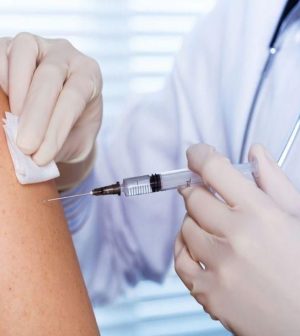- 10 Strategies to Overcome Insomnia
- Could Artificial Sweeteners Be Aging the Brain Faster?
- Techniques for Soothing Your Nervous System
- Does the Water in Your House Smell Funny? Here’s Why
- Can a Daily Dose of Apple Cider Vinegar Actually Aid Weight Loss?
- 6 Health Beverages That Can Actually Spike Your Blood Sugar
- Treatment Options for Social Anxiety Disorder
- Understanding the Connection Between Anxiety and Depression
- How Daily Prunes Can Influence Cholesterol and Inflammation
- When to Take B12 for Better Absorption and Energy
Studies Show Power of Pfizer Vaccine Starts to Wane After Two Months

THURSDAY, Oct. 7Two new studies confirm that the immunity offered by two doses of Pfizer’s coronavirus vaccine drops off after about two months, although protection against severe disease, hospitalization and death holds strong.
The reports, from Israel and Qatar, add to evidence that suggests even fully vaccinated people need to continue to guard against COVID-19 infection.
In one study, Israeli researchers found that antibody levels among 4,800 health care workers fell rapidly within months after two doses of the Pfizer vaccine, “especially among men, among persons 65 years of age or older, and among persons with immunosuppression.”
That study also found that that immunity lasts longer in people who are vaccinated after natural COVID-19 infection.
In the other study of Pfizer’s vaccine, researchers in Qatar found that “protection against infection builds rapidly after the first dose, peaks in the first month after the second dose, and then gradually wanes in subsequent months,” Laith Abu-Raddad, of Weill Cornell Medicine-Qatar, and colleagues wrote.
“The waning appears to accelerate after the fourth month, to reach a low level of approximately 20% in subsequent months,” they added.
However, the researchers also found that protection against hospitalization and death remained above 90%.
The vaccine’s weakening protection may be due to people’s behavior, the study authors noted.
“Vaccinated persons presumably have a higher rate of social contact than unvaccinated persons and may also have lower adherence to safety measures,” they wrote. “This behavior could reduce real-world effectiveness of the vaccine as compared with its biologic effectiveness, possibly explaining the waning of protection.”
The studies were published Wednesday in the New England Journal of Medicine.
Pfizer has been saying that immunity from the first two doses of its vaccine begins to wear off after a few months, CNN reported. Last month, the U.S. Food and Drug Administration approved emergency use of booster doses of Pfizer’s vaccine six months after high-risk people finish their first two doses.
Meanwhile, the U.S. Centers for Disease Control and Prevention has recommended booster shots for people over 65, people with medical conditions that raise their risk of severe COVID-19, and people at high risk of coronavirus infection because of their jobs.
In the United States, more than 6 million people have already received a third dose of vaccine. On average, the CDC says, the pace of booster shots is now higher than the rate of people getting vaccinated for the first time, CNN reported.
More information
Visit the U.S. Food and Drug Administration for more on COVID vaccines.
Source: HealthDay
Copyright © 2026 HealthDay. All rights reserved.










